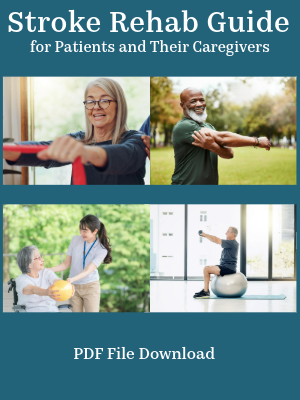Transient Ischemic Attack (TIA)
A transient ischemic attack (TIA) is often called a "mini stroke" because it produces similar symptoms to a stroke, however, the symptoms usually only last a few minutes. It occurs when blood flow to the brain is briefly interrupted or blocked (often by a clot). Although most symptoms of TIA disappear within an hour, TIAs can be a warning sign of impending stroke. About one in three people who experience a TIA eventually experience a stroke as well. If you have onset of TIA or stroke symptoms, you should seek medical attention immediately as you cannot tell the difference between the two. Even if your symptoms go away or you only have mild stroke symptoms, you need to seek medical assistance. Treatment can help prevent a future stroke!
TIA symptoms can include:
Numbness or tingling particularly on one side of the body
Weakness on one side of the body
Slurred speech
Blurry vision
Dizziness
Loss of balance
Bowel or Bladder Incontinence
Impaired sensation
Risk factors for transient ischemic attack include:
Atherosclerosis
High blood pressure
Heart disease
Migraine headaches
Diabetes
Smoking
Increasing Age
TIAs or mini strokes may or may not show up on brain imaging studies, but it is still important to discuss the symptoms with your neurologist even if imaging studies are negative. Some individuals are prone to multiple TIAs which over time can be debilitating and cause cognitive decline. Do not be fooled by the term "mini stroke" as this condition is serious and future TIAs need to be prevented if possible. Some ways to help prevent TIAs may include lowering cholesterol, lowering blood pressure, ceasing to smoke, diabetes management, exercising regularly, and seeing a physician on a regular basis.
Get Our Stroke Rehab Guide

Our comprehensive stroke rehab guide in pdf format is designed for both patients and caregivers who want clear, practical ways to support recovery, improve daily function, and regain independence at home. It includes
- Rehab exercises with pictures for safe home practice
- Physical, occupational, and speech therapy guidance
- Tips for daily activities and adaptive equipment
- Answers to common questions from patient and caregivers
- Information on stroke causes, treatment, and prevention
A single therapy visit can run $150 or more. The Stroke Rehab Guide is only $14.99, and includes a pdf guide you can continue to refer to in the future with exercises and information on stroke recovery. In addition, any time an update or new version of the guide is written, you will get the updated version for free.

About the Author
Karen Murray, OTR, CHT, CSRS, is a licensed occupational therapist, Certified Stroke Rehabilitation Specialist, Certified Hand Therapist, and Certified Personal Trainer with over 29 years of experience working with stroke survivors in hospital, outpatient, and home settings. She founded Stroke-Rehab.com to help patients and caregivers better understand stroke recovery, find evidence-based resources, and regain independence at home.
Medical Disclaimer: All information on this website is for informational purposes only. This website does not provide medical advice or treatment. Always seek the advice of your physician or other healthcare provider before undertaking a new healthcare or exercise regimen. Never disregard professional medical advice or delay seeking medical treatment because of something you have read on this website. See the disclaimer page for full information.














